No movement without community! On this page you can read about us and how you can join.
Table of content:
The best way to join is as easy as start planting Open Source Seeds at home, in your garden, in community gardens or in any place of your choice. Then tell us and others about it, and connect.
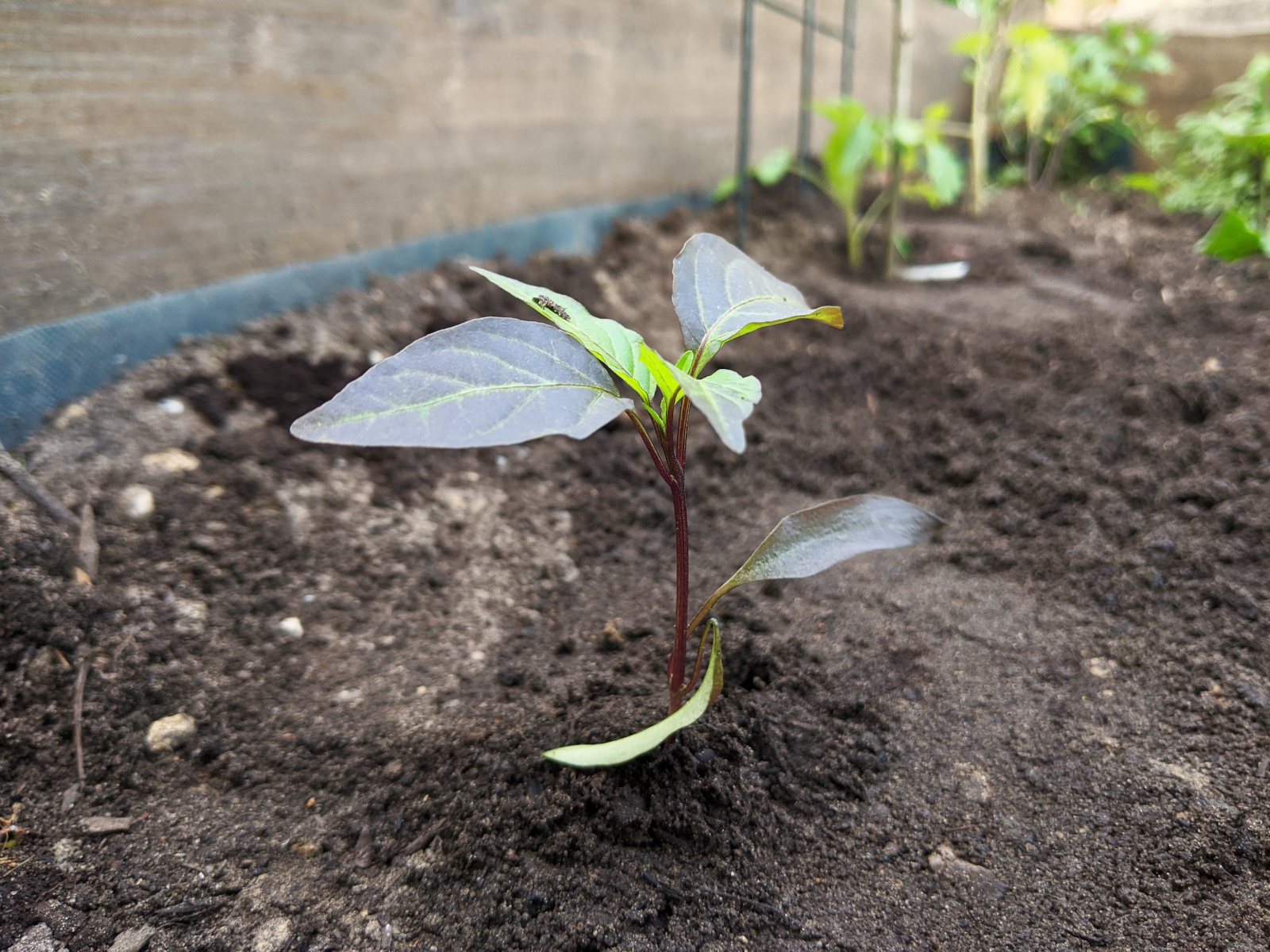
Often, you can order Open Source Seeds directly from its respective breeders. More and more you also get Open Source Seeds from re-sellers and on local seed exchanges. In addition, we help by sending out seed collections every spring. You find more information about getting seeds on our dedicated seeds page.
Some of us enjoy having a spot in a community garden and use it to create an Open Source Garden together. Gardening together is often easier and while practicing, you can exchange ideas about open source philosophy and maybe even tell others about it. If you now feel like doing it, find some fellow gardeners and ask in a community garden next to you if they have a spot, a raised bed or even a plot for you.
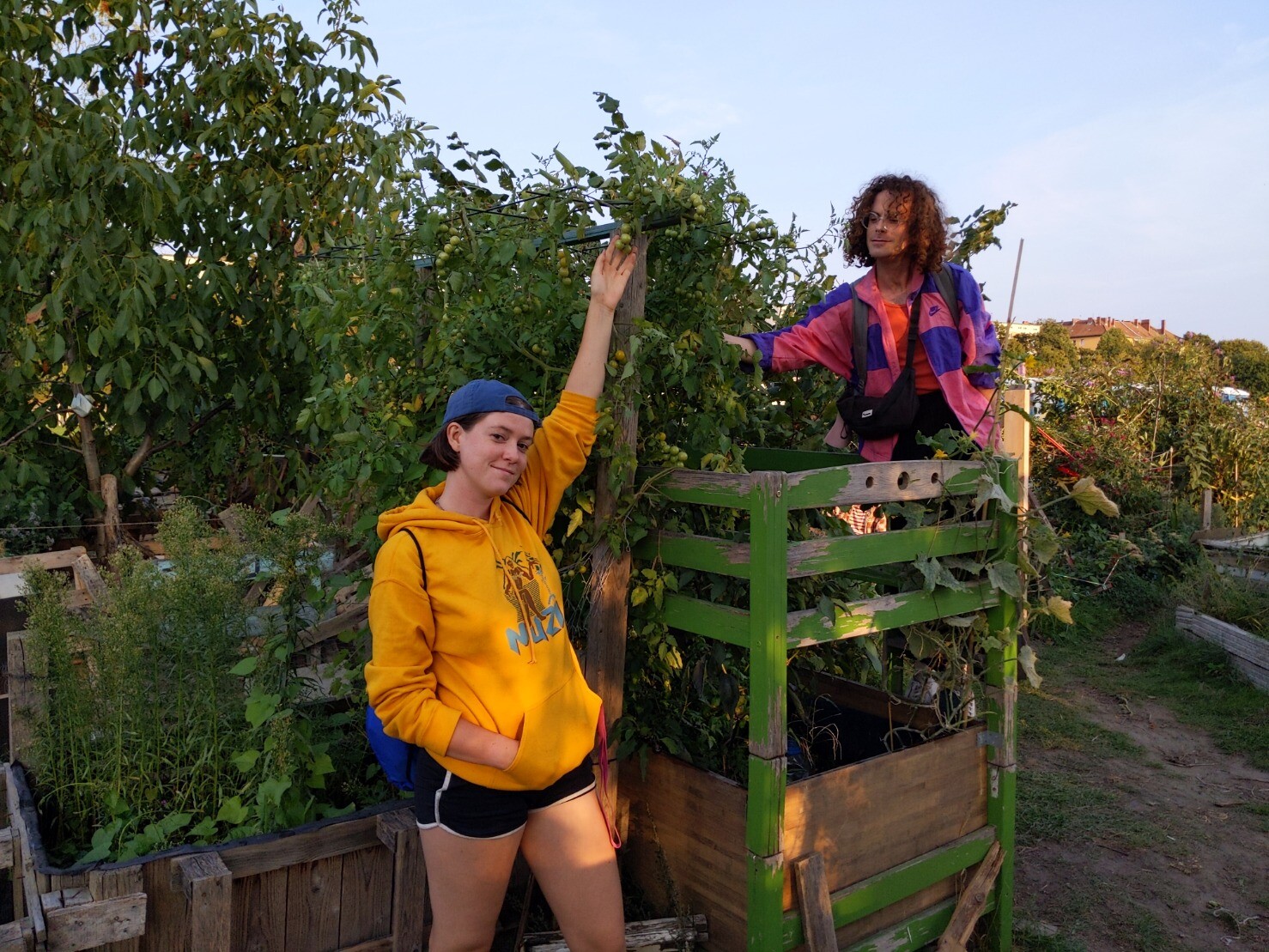
Whether you garden alone or together - or even if you do not have the possibility to garden yourself but you like the idea: You are very welcome to participate online and connect with like-minded people.
Tell us about your own garden or another Open Source Garden. Take photos, paint a picture or note down a thought about Open Source Gardens and share them. Use the hashtags #OpenSourceGardens and #OpenSourceSeeds. Connect yourself and grow with us!
Talking about connecting, we run a public Matrix room for anyone to join and a Mastodon account.
We like to offer more services in the future, in particular a map of the Internet of Gardens. We will let you know once we have them set up.
Open Source is about sharing. Sharing knowledge, sharing access and sharing information. So we believe that key to Open Source Seeds is sharing them with other people.
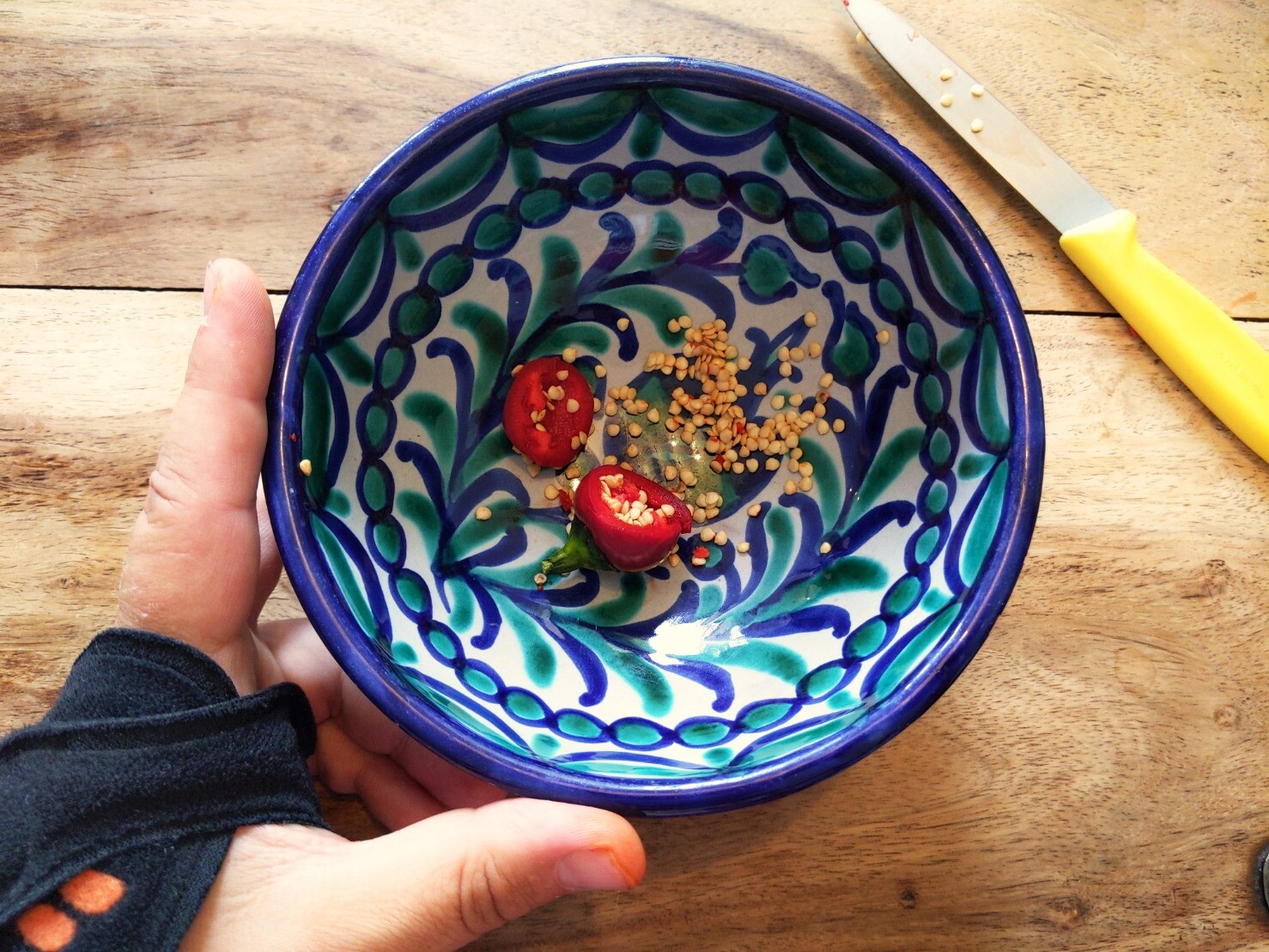
In future we like to offer a seed sharing platform to facilitate the spreading of Open Source Seeds in your hands. For now and until then we offer boosting your own seed shares and we created workshop material for you to help saving your own seeds. Find more information on our seeds page.
We love pictures and videos of your plants, gardens and tools. We are working on ideas on how to enable you to share them in an easy and decentralized way and let you know as soon as we have a good set-up in place. Until then we have started to collect community pictures in our cloud and encourage you to follow Open Source Gardens' Mastodon handle where we post and boost a lot of pictures out of the community and watch our for Open Source Gardens' Peertube account where we post the latest videos related to open source gardening.
We meanwhile have produced some information material and material for practical use, from posters to seed bags. You can find an overview of our material on our media page.
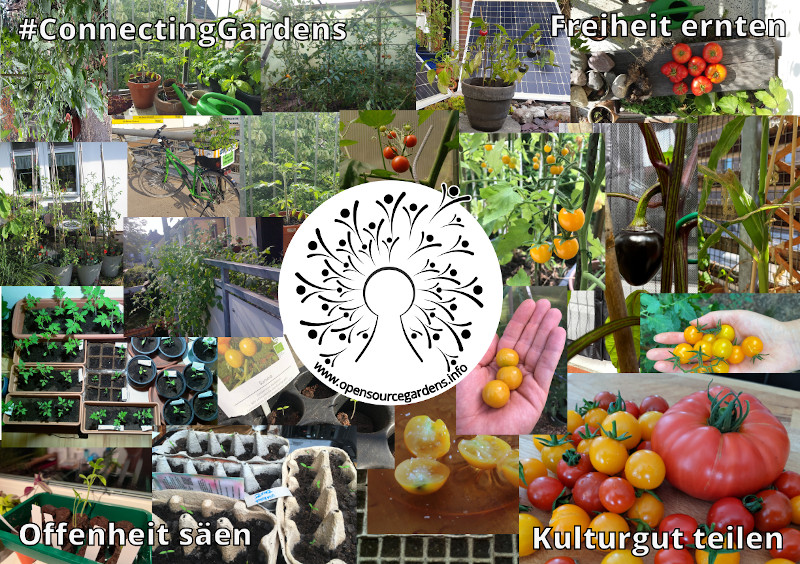
Like any new idea or movement, we thrive on people talking about us and spreading the word. If you like our initiative, tell your friends about it and what exactly you like most about it. Share with them our homepage, our mini-blog, our video channel or our matrix room so they can start informing themselves.
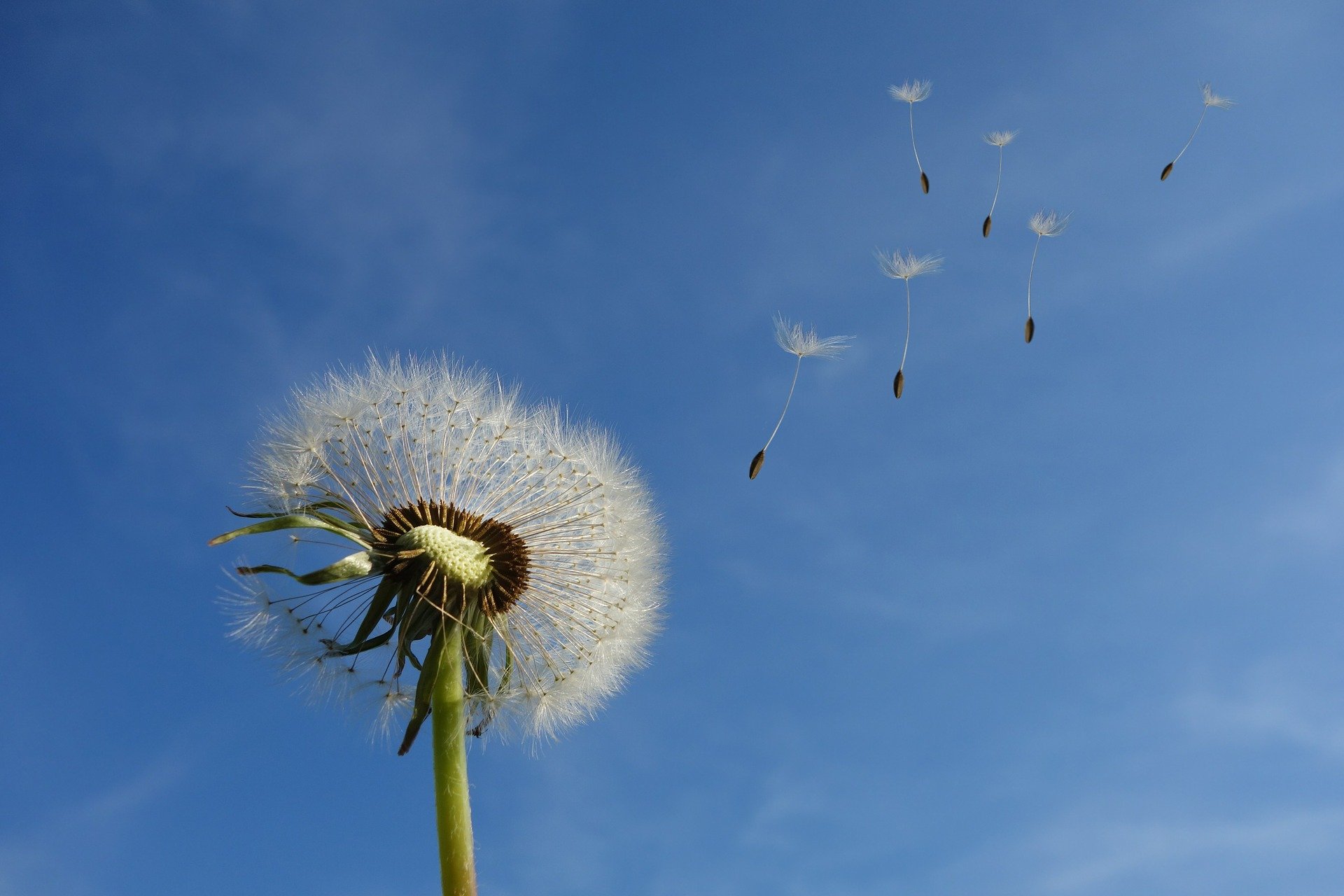
So far, there are still only a few varieties that are already open source licensed. But they become more every year and our movement is growing around the globe. Open Source Seeds in Europe, Open Source Seeds Initiative in the United States, Bioleft in South America and many more: all of them are manifestations of the same movement and they offer breeders the chance to publish their varieties as open source seeds. Join them and publish your varieties as open source seeds as well.
Best method doing so is to you use regionally adapted "old varieties". These evolutionary developed varieties are being displaced at high pressure by new and specially-cultivated varieties of the chemical industry and old varietites unfortunately find decreasingly use in modern agriculture. Monocultures, hybrid breeding and infertile varieties are the result. Time for more diversity! We can further develop these old varieties in an evolutionary way, adapting plants optimally to local conditions as well as to climate changes. And we can forever take away the resulting varieties from the monopolies of agriculture by publishing them as open source seeds! Connect with other breeders and form resilient reference groups together.
"I will have my new breeding declared common property through OpenSourceSeeds, so that in the future it can be grown all over the world and never in a lifetime a corporation like Monsanto can acquire the rights to my variety! It will then be common property, I will get my deserved recognition as a breeder and thousands of gardeners and tomato lovers can enjoy my success. I owe that to my grandfather, and to everyone out there who supports my project." - Don Giardino, "Self-Sufficient"
"Openness sown - freedom grown!"